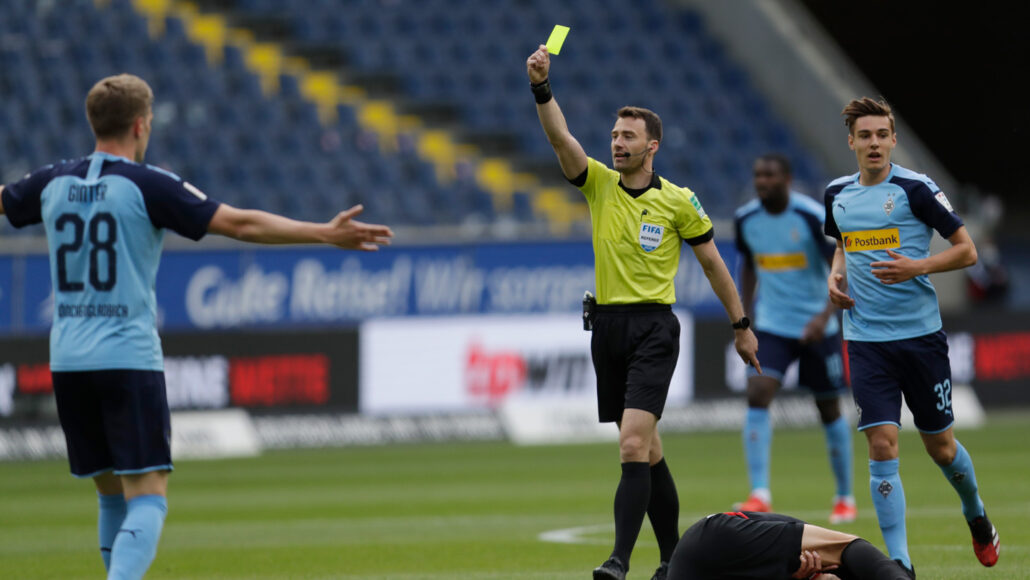Empty stadium ‘ghost games’ increase losses for home teams
European soccer teams also racked up more foul calls in home games during the pandemic

Due to pandemic restrictions, two German soccer clubs play in an empty stadium here on May 16, 2020. Without fans, referees issued more foul calls — signified by yellow cards — against home teams than when fans had been present.
Michael Probst/Pool via Getty Images







